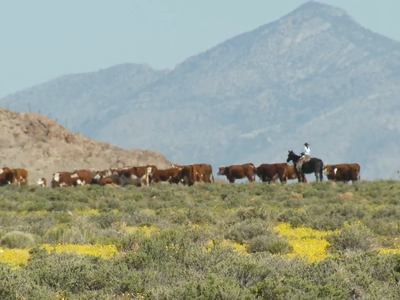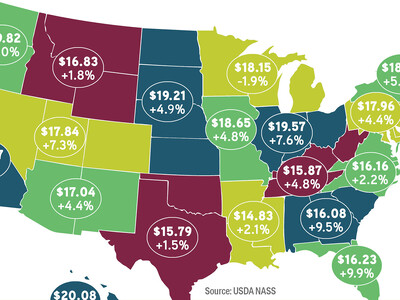Renewable Fuels Pleased with Administration
Renewable Fuels Pleased with Administration. I’m Greg Martin with today’s Line On Agriculture.
The ethanol industry is pleased with the actions announced last Tuesday by the Obama Administration with regard to the future development of biofuels under the Renewable Fuels Standard and the creation of a Biofuels Interagency Working Group. Bob Dinneen is President of the Renewable Fuels Association.
DINEEN: First of all I think the President has sent an incredibly important signal today that biofuels are going to be a key component in his strategy to address energy, economic and environmental challenges. The intra-agency biofuels working group which he announced today is going to streamline the cooperative efforts between the federal government and private industry and we think is going to bring about the accelerated evolution of the biofuels industry in this country and we’re very excited about it. We think this is a very positive step forward for the industry and we certainly applaud Secretary Vilsack and the Obama Administration and everybody who has worked hard to make this a reality.
Dinneen says the most important part of the action is the proposed rulemaking for the Renewable Fuels Standard under the Energy Independence and Security Act and the application of indirect land use impacts. He says ethanol beats petroleum hands down when only direct effects are considered.
DINEEN: 61% lower than petroleum fuels is the average ethanol produced today when just comparing apples to apples with direct impacts. Now the law required EPA to also look at indirect effects and EPA has done their best to try to do that and that is where there is so much uncertainty and so much dialog and discussion and debate.
Dinneen says he is encouraged by the fact that EPA is further reviewing the complex indirect land use issue.
DINEEN: Trying to evaluate indirect effects, particularly international indirect effects is highly dependent on the assumptions that are used and the data that are available and there is a great deal of uncertainty about this. Which is why the administration, I believe, wisely chose to subject those international indirect effects to a peer review. And we applaud the EPA and administration for recognizing that there is such uncertainty over that element of this debate and indicated that they’re going to have some consensus developed before finalizing this rule.
That’s today’s Line On Agriculture. I’m Greg Martin on the Northwest Ag Information Network.

















